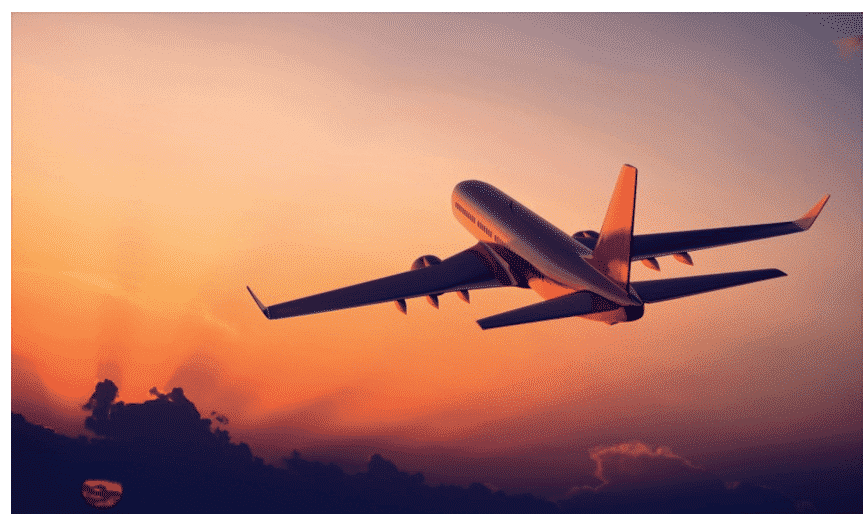Frequently Asked Questions Regarding Flying & Dental Conditions
December 2017
By: Skygate Dental
There are several issues flyers may come across with regard to their teeth. A toothache from flying is known as Barodontalgia (click here to read more about how air pressure can affect teeth). However, this is usually a risk for those who are flying in unpressurised aircraft. In most cases, recent dental work (cleans, fillings) generally poses little risk; however, medications, certain surgical cases, active lesions, abscesses, and potential unfinished root canal treatment may pose issues. Let’s look below for more information.
Out of a study of 11,617 personnel, 30 (0.26%) complained of a toothache at the simulated height of 43,000 feet.
Can I Fly After a Recent Root Canal?
If you are wondering if it is safe to fly after a root canal, you can rest easy. We recommend waiting 5-7 days to ensure there is no post-op pain or issues. After your root canal is complete you are generally fit to fly. However, this recommendation is for pressurised cabins only.
There has been some suggestion that between root canal visits flying may pose an issue if the temporary filling is dislodged, or if the tooth is open and unfilled there is a possibility of expansion of gas within the tooth. If the temporary has been well placed and is of ideal seal this is often of low concern; if it has been dislodged it is best to see your dentist as soon as possible.
Can I Fly after a Recent Filling?
Recent fillings generally will be fine; however, if the filling is deep or very close to the nerve (regardless of flying this may pose issues; close and long-term follow-up is necessary).
Can I Fly After A Wisdom Tooth Extraction or Getting Dental Implants?
In short, it is OK to fly after wisdom tooth extractions and dental implants as the cabin is pressurised, and changes in altitude will not cause further pain or bleeding.
However, please consider some of the following tips and information to make the recovery as pleasant as possible.
It would be ideal to have a least one to two days rest following any surgical procedure. Often times the whole ordeal can make people feel a bit out of sorts. Further, some of the painkillers used after the procedure can make you drowsy and sleepy. Thus caution is recommended, and it is best to discuss a recovery plan with your dentist.
Generally, planes can be very dry, in some instances, this may interfere with the natural clotting ability of your body. Although a very low risk, this may cause some disturbance in healing.
Do Dental Implants Set Off Metal Detectors?
Sometimes, patients will worry if dental implants will set off alarms at the airport. Dental Implants are made of Titanium or in some cases ceramic, non-magnetic materials, and therefore do not set off metal detectors.
Can I fly After Oral Surgery?
There are a few cautions with recent oral surgery. One, generally the medication you may be taking might make you drowsy or unable to operate at peak efficiency. Thus caution is recommended, and it is best to discuss this with your dental practitioner. Further, if an upper tooth is extracted and communication is made between your mouth and the sinus this may cause issues and pain with pressure change. As well, it is generally dry on aeroplanes and in cases of recent oral surgery the blood clot may be affected.
Can I Fly With an Oral Infection?
Thus, in most cases, it is safe to fly and grounding is often not necessary with the exception of active and acute infections; as well as medications, which may affect motor function skills. However, often cases only warrant caution and it is best to speak to your dental healthcare professional if there are any concerns.
Should I take Dentures off on an Air Plane?
There is some evidence to suggest that traditionally cemented crowns may have reduced retention as there may be very small voids in the cement which may cause a decrease in retention with altitude change. Now, this is unlikely to cause great concern with flights and is more of a limited concern.
Further, during long flights it can be dry, which may affect the retention of partial and full dentures; as well as those who suffer from dry mouth.
Do Dental Implants Set off Metal Detectors? Sometimes, patients will worry if dental implants will set off alarms at the airport. Dental Implants are made of Titanium or in some cases ceramic, non-magnetic materials, and therefore do not set off metal detectors.
How Should I care for my Teeth Post Surgery?
Please consider some of the post-op extraction tips below:
- Oral Hygiene and Cleaning
- Help avoid infection by cleaning your mouth.
- An oral antiseptic such as savacol (from the Pharmacy) can be used twice daily for two weeks.
- Warm salt rinses three times daily for two weeks.
- Gentle Rinsing must be done in the first 24 hours, to avoid washing out the blood clot.
- Watching Out For Infection
- Prolonged pain, fever or continued swelling could indicate infection. You should contact the practice if this occurs.
- Tips to Stop Bleeding
- Firm pressure should be maintained over the surgical site with gauze for 30 minutes. Some weeping is to be expected.
- Avoid sucking through straws as this can affect the blood clot and healing process.
- Avoid hot drinks
- Avoid excessive activity for the first 24 hours
- Avoid vigorous rinsing for the first 24 hours
- If excessive bleeding is noticed, this is not normal.
- If bleeding continues, call the office number at any time or report to the Hospital.
What Should I do if I am Swelling After Dental Surgery?
- For the next 24-48 hours apply ice packs intermittently for 15 minutes on and 10 minutes off.
- DO NOT apply the ice packs directly to the skin. Place a towel or cloth over it.
Pain:
Discomfort after a dental extraction is to be expected.
Your Skygate Dentist will prescribe the appropriate medication for your type of surgery.
Please be aware of the medication’s side effects.
If you do experience a medication problem, please contact the practice, your general practitioner or the hospital.
Severe pain after a dental extraction is unusual. If significant pain persists you should call the practice.
Nutrition:
Avoid dehydration by keeping up your fluid intake with plain water or diluted cordial
Eat nutritious food.
You may experience loss of appetite and nausea following your treatment.
In a fast-paced world, often people are under time constraints; in some instances finding dental treatment unavoidable and necessary before flying. Often patients will enquire about risks and safety before flying and precautions that should be taken.
Quick Facts: Dental pain in a tooth caused by a change in atmospheric pressure is called barodontalgia.
Historically, after the innovation of modern flight, physiologic and pathologic issues relating to the face and oral cavity were reported [1].
However, in today’s commercial airliners the cabin air pressure is gradually increased as the aircraft ascends; then at a cruising altitude of 42,000 feet the cabin altitude is usually maintained around the equivalent of 8000 feet [2]. In contrast, military jets pressurize in a different nature and generally experience greater gradients of change [3].
Contact Skygate Dental
Looking for a gentle and caring dentist is your area? Dentist Rand Benard and the team at Skygate Dental, are here to help. We cater for all individuals from general dentistry to cosmetic dentistry. Skygate Dental does many different procedures such as implants, crowns, fillings, root canals, and much more. If you would like more information regarding please do not hesitate to contact Skygate Dental today on (07) 3114 1199 or 0406 579 197
References
1. Zadik Y. Aviation dentistry: current concepts and practice. Br Dent J 2009; 206:11–6
2-3. Holowatyj RE. Barodontalgia among flyers: a review of seven cases. Department of oral medicine and pathology, faculty of dentistry, University of Toronto. J Can Dent As- soc 1996; 62(7): 578-84
4. Robichaud R, McNally ME. Barodontalgia as a differential diag- nosis: symptoms and findings. J Can Dent Assoc 2005;71:39–42.
5. Zadik Y, Drucker S. Diving dentistry: a review of the dental implications of scuba diving. Aust Dent J 2011; 56:265–271.
About the Author

Dr. Rand Benard B.D.Sc. (Hons) (University of Melbourne)
Dr. Rand Benard received his Bachelor of Dentistry (Hons) at the University of Melbourne after initially undertaking a Degree in Biochemistry (Hons). Dr. Benard continues his commitment to continual learning with ongoing education that aims to enhance patient care by utilizing the latest evidence-based technology.
Dr. Benard places a strong emphasis on communication; combined with a strong view for a preventative as well as a comprehensive treatment approach.
After many years of practising at a private practice in Toowoomba, Dr. Benard has moved to Brisbane to further his education as well as be closer to his family.


